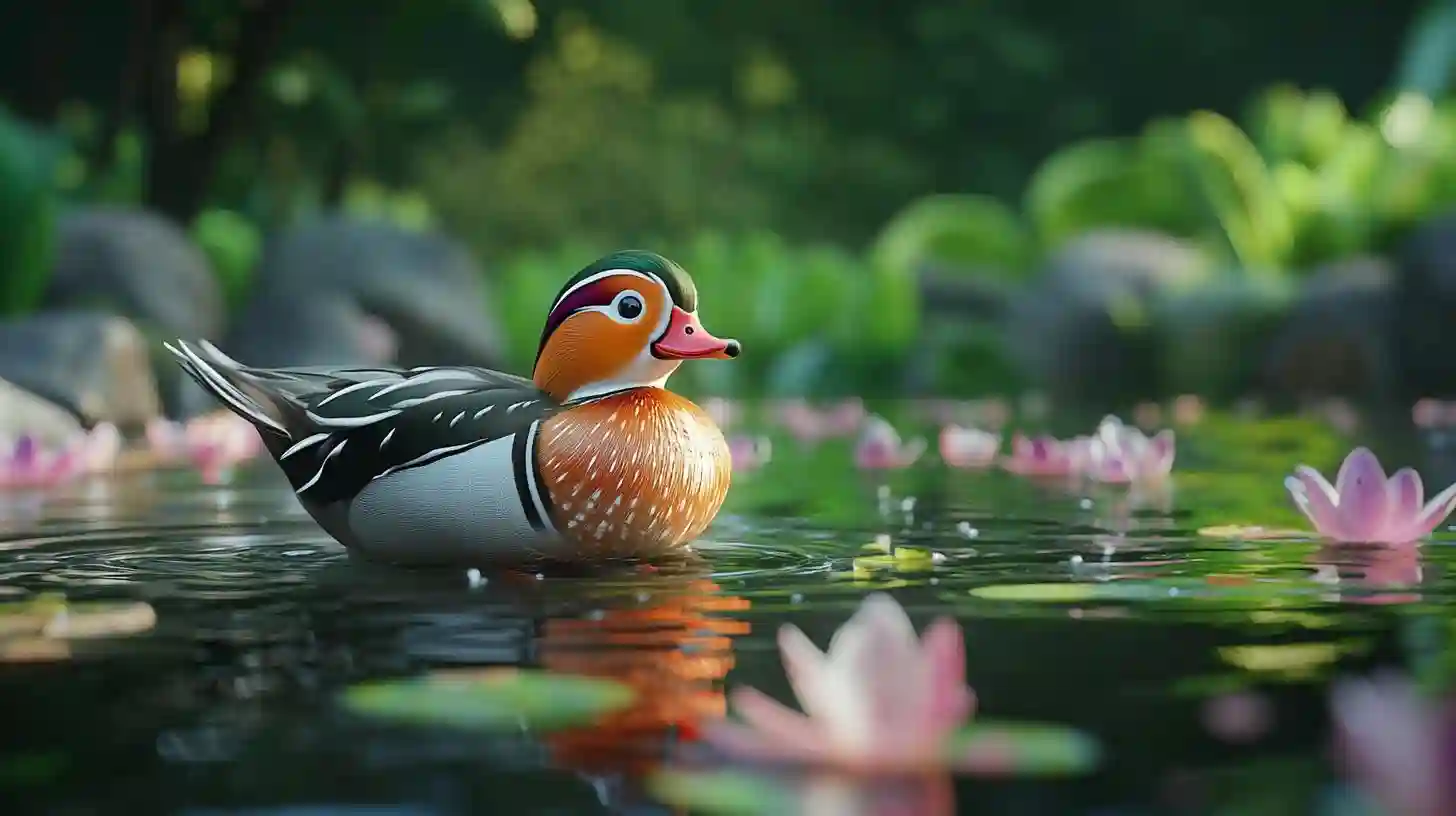
Mandarin ducks, with their striking plumage and graceful demeanor, are among the most captivating birds in the world. Their vivid colors and unique appearance have made them a symbol of love and fidelity in various cultures, but despite their allure, these ducks have become increasingly rare in the wild. The reasons for their declining populations are multifaceted, largely revolving around habitat loss, hunting pressures, and insufficient conservation efforts. Understanding these factors is essential for fostering appreciation and action toward the preservation of this beautiful species.
One of the primary reasons for the rarity of mandarin ducks is the loss of their natural habitats. These birds typically inhabit freshwater lakes and rivers with plenty of overhanging trees, where they can nest and forage in relative safety. However, urban development, agriculture, and industrialization have significantly diminished these habitats. Wetlands and forested areas, once abundant, have been drained or destroyed to make way for human activities, severely limiting the places where mandarin ducks can thrive. As their habitats become fragmented, it becomes increasingly difficult for these birds to find suitable nesting sites, food sources, and safe environments to raise their young.
Moreover, pollution poses a significant threat to their habitats. Chemical runoff from agricultural fields and industrial areas can contaminate the water bodies that mandarin ducks depend on. This pollution not only affects the quality of their habitat but also directly impacts their food sources, making it difficult for them to find the necessary nutrients to survive and reproduce. Insects and aquatic plants, which constitute a large part of their diet, are often adversely affected by pollutants, leading to diminished food availability for these birds.
Furthermore, hunting remains a critical challenge for mandarin ducks. While protected in many regions, illegal hunting still poses a danger, often driven by the high demand for their stunning feathers and meat. In some cultures, mandarin ducks are hunted for sport or kept as ornamental pets, leading to further declines in their wild populations. The demand for these ducks compounds the existing pressures on their habitat, creating a dire situation for their survival.
Conservation efforts aimed at protecting mandarin ducks are ongoing, but they require enhancement to be truly effective. Numerous organizations and governments are working to establish protected areas where these ducks can thrive without the pressures of human interference. These areas aim to restore and preserve the wetlands and forests that are critical for their survival. Establishing reserves helps create safe spaces for breeding and feeding, allowing populations of mandarin ducks to stabilize and potentially recover.
In addition to habitat protection, raising awareness about the importance of mandarin ducks and their habitats is vital. Education can play a crucial role in conservation, helping local communities understand the ecological and cultural significance of these remarkable birds. By fostering a sense of connection to their environment and showcasing the beauty of mandarin ducks, communities can become advocates for their protection. Engaging local populations in conservation efforts can lead to more sustainable practices that benefit both the birds and the people who share their ecosystem.
Scientific research also plays a significant role in understanding the complexities surrounding mandarin duck populations. Studies focusing on their breeding habits, migratory patterns, and interactions with their ecosystems are essential for developing informed conservation strategies. By gathering data, scientists can identify the most critical areas for intervention, enabling targeted conservation actions that are more likely to be effective.
Collaboration among various stakeholders is vital for a successful conservation strategy. Government agencies, non-profit organizations, and local communities must work together to create comprehensive plans that address habitat preservation, legal protections, and sustainable practices. Building strong coalitions can amplify efforts and ensure a broader impact on protecting mandarin ducks and their habitats.
As the plight of mandarin ducks continues to unfold, it serves as a reminder of the interconnectedness of species and their environments. Protecting these enchanting birds means taking a stand for the biodiversity and health of our ecosystems. By committing to conservation efforts, whether through habitat restoration, addressing pollution, or advocating against hunting, we can work towards a future where mandarin ducks thrive in their natural habitats, enriching the world around us with their presence and beauty. The story of the mandarin duck is not just a tale of a rare bird; it reflects our responsibility to safeguard the delicate balance of nature and ensure that future generations can also experience the wonder of these incredible creatures.